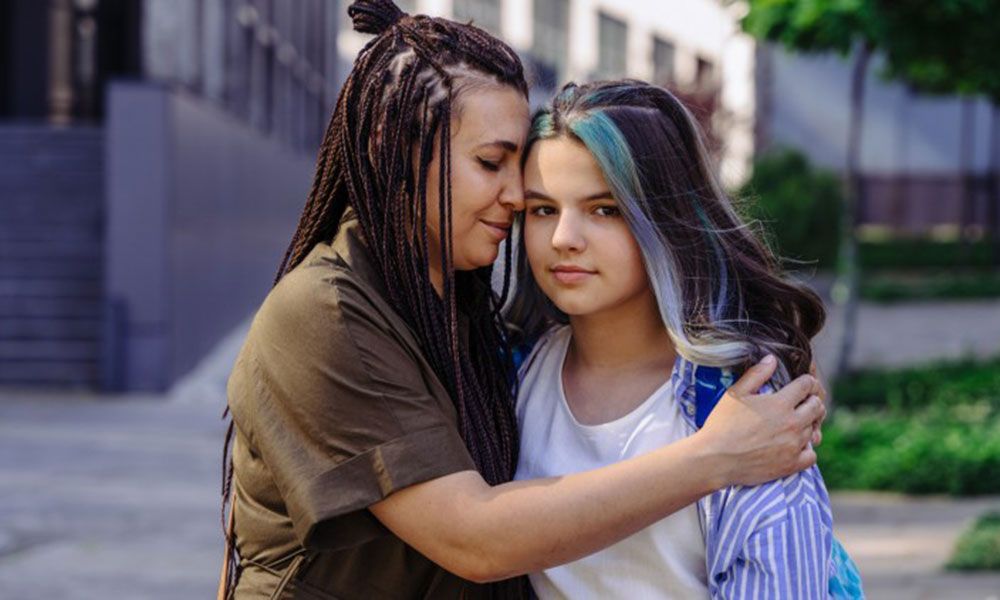Trainee Spotlight: August Jenkins’ research on discrimination and neighborhood context

August-Jenkins-headshot-website-news
February 23, 2021
August Jenkins’ research explores the connections between relationship quality and psychological health among African Americans
Graduate student August (“AJ”) Jenkins strives to inspire hope and joy in others daily.
As a researcher in human development and family studies, Jenkins focuses on how to encourage flourishing in people’s day-to-day lives and relationships.
Her career goals include conducting research and publishing studies on African-American families and mental health, and currently she is carrying out a project funded by an F31 grant from the National Institute on Minority Health and Health Disparities to study the connections between relationship quality and psychological health among African-American couples.
More specifically, she is using intensive longitudinal data from a subsample of married and cohabitating African Americans who participated in the National Study of Daily Experiences (NSDE), a sub-study of the Midlife in the United States study, and she is currently assessing the cross-day associations between daily affect and relationship events across eight days.
“What I’m conceptualizing as relationship events are those stressful or positive events that occurred with someone’s spouse or romantic partner,” Jenkins explained.
“The NSDE does a really great job of conceptualizing and assessing stress,” said Jenkins. She is using the data to examine the long-term effects of stress in partnered African Americans over the course of a decade to better understand the ecological and social factors contributing to their stress, focusing on the impact of racial discrimination and neighborhood context.
“Relative to other racial and ethnic groups, African Americans tend to experience more severe and persistent symptoms of psychological distress and more intimate relationship difficulties,” Jenkins said.
Jenkins notes the value of examining the effects of both experiences of discrimination and neighborhood context for African-American relational and psychological well-being.
“I think where people live has an effect on their health, and there’s a growing body of literature on neighborhood effects that show the potent consequences that exist regardless of your race, and I think for Black people those experiences are even more salient because of the difficulties presented by housing segregation, redlining, or blockbusting — which affect where people live and the types of places and quality of where they’re residing,” said Jenkins.
“A lot of times, racism can be seen as an abstract concept, but knowing that it is ingrained in institutions and can be repressive in multiple ways is important,” Jenkins added.
As Jenkins pursues a doctoral degree, she is working closely with Steffany Fredman, associate professor of human development and family studies; David Almeida, professor of human development and family studies; and Alyssa Gamaldo, associate professor of human development and family studies, all at Penn State.
“Working with Dr. Fredman and Dr. Almeida has been a stimulating experience for me as they have different styles and come from different backgrounds. Dr. Fredman is trained as a clinical psychologist and often thinks about mental health on the dyadic or family level, and Dr. Almeida is trained as a developmental psychologist and often thinks about mental health at the individual level,” Jenkins said. “Additionally, working with Dr. Gamaldo has enhanced my research and fellowship experience, as she brings expertise in health disparities and disentangling the impact of neighborhood context and other sociocultural stressors that affect African-American health.”
Jenkins hopes to inspire other women of color to become researchers. “I hadn’t seen many women of color in research or with advanced degrees, so once I became comfortable doing research, I wanted to make sure that other women and people of color also see that it is possible,” she said.
Jenkins said she also plans to highlight the diversity within African-American communities in her research to make a positive impact on prevention, treatment, and policymaking.
“There’s the global health pandemic, and also the racial pandemic,” said Jenkins. “Current events have renewed and increased my motivation to keep doing my work.”
Trainee Spotlight: August Jenkins’ research on discrimination and neighborhood context

August-Jenkins-headshot-website-news
February 23, 2021
August Jenkins’ research explores the connections between relationship quality and psychological health among African Americans
Graduate student August (“AJ”) Jenkins strives to inspire hope and joy in others daily.
As a researcher in human development and family studies, Jenkins focuses on how to encourage flourishing in people’s day-to-day lives and relationships.
Her career goals include conducting research and publishing studies on African-American families and mental health, and currently she is carrying out a project funded by an F31 grant from the National Institute on Minority Health and Health Disparities to study the connections between relationship quality and psychological health among African-American couples.
More specifically, she is using intensive longitudinal data from a subsample of married and cohabitating African Americans who participated in the National Study of Daily Experiences (NSDE), a sub-study of the Midlife in the United States study, and she is currently assessing the cross-day associations between daily affect and relationship events across eight days.
“What I’m conceptualizing as relationship events are those stressful or positive events that occurred with someone’s spouse or romantic partner,” Jenkins explained.
“The NSDE does a really great job of conceptualizing and assessing stress,” said Jenkins. She is using the data to examine the long-term effects of stress in partnered African Americans over the course of a decade to better understand the ecological and social factors contributing to their stress, focusing on the impact of racial discrimination and neighborhood context.
“Relative to other racial and ethnic groups, African Americans tend to experience more severe and persistent symptoms of psychological distress and more intimate relationship difficulties,” Jenkins said.
Jenkins notes the value of examining the effects of both experiences of discrimination and neighborhood context for African-American relational and psychological well-being.
“I think where people live has an effect on their health, and there’s a growing body of literature on neighborhood effects that show the potent consequences that exist regardless of your race, and I think for Black people those experiences are even more salient because of the difficulties presented by housing segregation, redlining, or blockbusting — which affect where people live and the types of places and quality of where they’re residing,” said Jenkins.
“A lot of times, racism can be seen as an abstract concept, but knowing that it is ingrained in institutions and can be repressive in multiple ways is important,” Jenkins added.
As Jenkins pursues a doctoral degree, she is working closely with Steffany Fredman, associate professor of human development and family studies; David Almeida, professor of human development and family studies; and Alyssa Gamaldo, associate professor of human development and family studies, all at Penn State.
“Working with Dr. Fredman and Dr. Almeida has been a stimulating experience for me as they have different styles and come from different backgrounds. Dr. Fredman is trained as a clinical psychologist and often thinks about mental health on the dyadic or family level, and Dr. Almeida is trained as a developmental psychologist and often thinks about mental health at the individual level,” Jenkins said. “Additionally, working with Dr. Gamaldo has enhanced my research and fellowship experience, as she brings expertise in health disparities and disentangling the impact of neighborhood context and other sociocultural stressors that affect African-American health.”
Jenkins hopes to inspire other women of color to become researchers. “I hadn’t seen many women of color in research or with advanced degrees, so once I became comfortable doing research, I wanted to make sure that other women and people of color also see that it is possible,” she said.
Jenkins said she also plans to highlight the diversity within African-American communities in her research to make a positive impact on prevention, treatment, and policymaking.
“There’s the global health pandemic, and also the racial pandemic,” said Jenkins. “Current events have renewed and increased my motivation to keep doing my work.”
Related People
Related People









